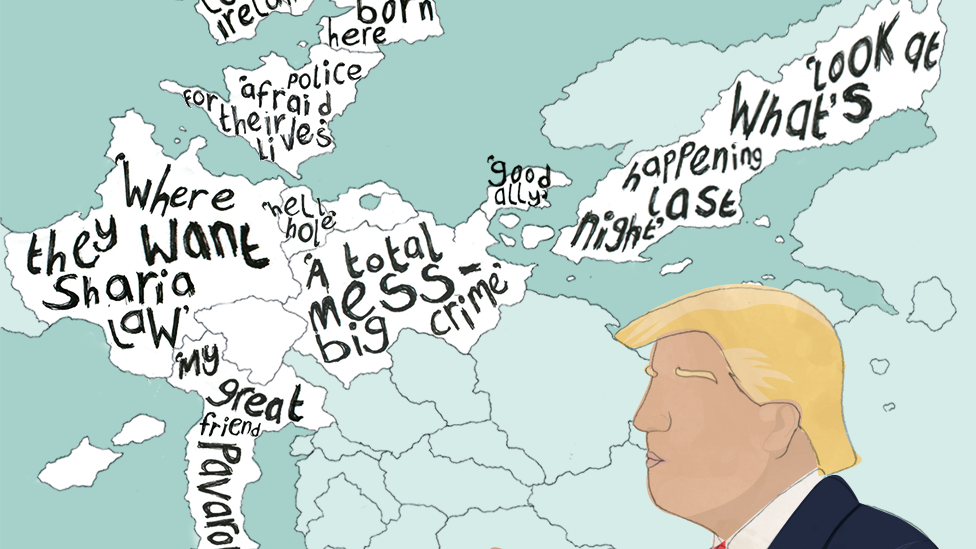How Angela Merkel is 'taking back control' - German style
- Published
"We Europeans have to take our destiny in our own hands," says Mrs Merkel
Angela Merkel is "taking back control" - to borrow the wildly successful, emotive phrase coined by those in the UK campaigning to leave the EU last year.
The German chancellor caused a storm this Sunday, particularly in the English-language press and Twittersphere, when she declared: "The era in which we could fully rely on others is over to some extent."
But, contrary to the hysteria about "Iron Angie" signalling a slamming of European doors on Trump USA and Brexit UK, what I mean by her "taking back control" is this:
Like the UK's Leave campaigners, Angela Merkel is heading towards a vote. Though Germany isn't debating EU membership, it's in the run-up to an autumn general election.
Mrs Merkel is now on the campaign trail and not at all above injecting some populism into her politics.
President Trump is hugely unpopular among German voters and his failure to commit to the Paris climate accord, at the G7, and to Nato's Article Five last week angered many Europeans.
Mrs Merkel's pointed comments about no longer being able to rely fully on allies were delivered to rapturous applause while on the campaign trail in the (conservatively) pumped arena of a Munich beer hall.
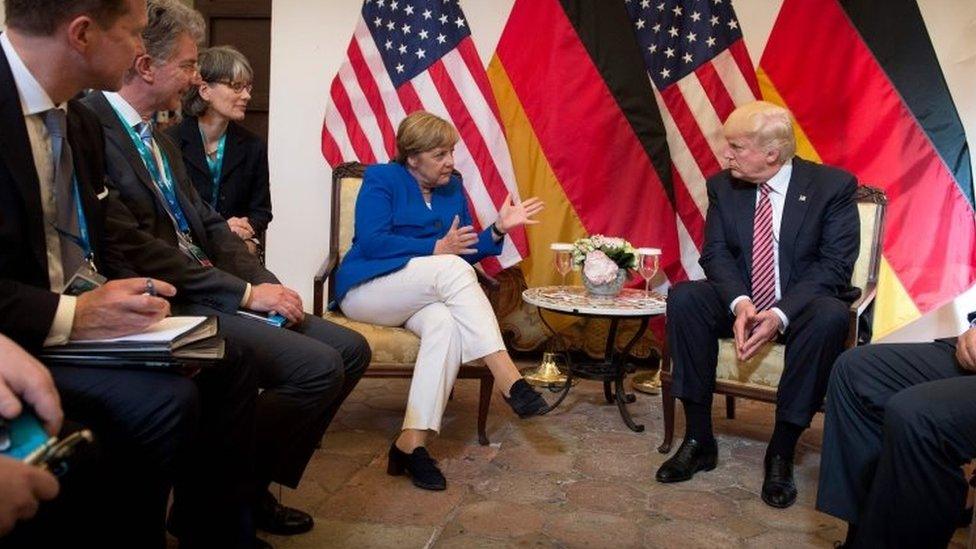
Not on the same wavelength? Angela Merkel and Donald Trump during a G7 summit in Sicily
Campaign Trail Merkel, as we'll call her for the moment, is also aware that German voters aren't just partial to a bit of Trump-thumping - but also to a full-on promotion of Europe.
Liberal Europeans have felt immensely frustrated at the constant Brussels bashing by nationalist politicians over the past couple of years.
Resentment has built up, too, over Russia seemingly being able to do whatever it wants in Crimea, Syria and the cyber-sphere despite supposed international norms.
And there's real anger and fear about Donald Trump the Unpredictable, a man many in Europe judge to be ignorant about world politics, diplomacy and the workings of a democracy.
Germans believe more than ever now that Europe needs be assertive; to stick together and be strong together.
They are feeling more confident, too, with pro-EU, pro-Merkel Emmanuel Macron as French president.
Can't go it alone
Enter Chancellor Merkel's emotive language à la "take back control', except what she says is "Europe needs to take its fate into its own hands".
The Bavarian beer hall loved it, as do many Germans, giving Mrs Merkel that edge over her political rivals.
However.
Angela Merkel - political old hand and consummate pragmatist - has not been subsumed by Campaign Trail Merkel.
Would she like to be able to safeguard the stability and safety of Europe without relying on what she regards as an unpredictable US and an unreliable UK?
Absolutely.
She believes Europe must co-operate more on defence: pooling resources, spending military budgets more intelligently and bolstering itself as much as it can.
But she knows full well that Europe can't go it alone.
Certainly not Germany, with its post World War Two sensitivities about taking up arms.
Trump meets Merkel: The biggest difference between US and Germany
Britain leaving the EU means the bloc only has one military power left - the French one - and one seat on the UN Security Council.
Nato is now more important than ever for EU safety.
Europe relies, too, on British intelligence and co-operation in fighting terrorism.
Chancellor Merkel has been around the political block more than a few times, and she is not now biting the hand that feeds (bear in mind, too, America's huge importance for German business).
Donald Trump may not be so sure about Nato, but the US vice-president and the defence secretary say they are fully committed.
And at Nato, the G7 and when she visited Donald Trump in Washington in March, Angela Merkel was diplomatic at all times, leaving snubs and small shows of strength to France's keen-to-prove himself presidential newbie, Emmanuel Macron.
When Angela Merkel says Europe needs to be take its fate in its own hands, she means keeping transatlantic links open and strong, but being politically, emotionally and - if possible - militarily prepared if it all falls apart.
Rather than closing the door on the US, she hopes very much the US isn't turning its back on Europe.
- Published28 May 2017
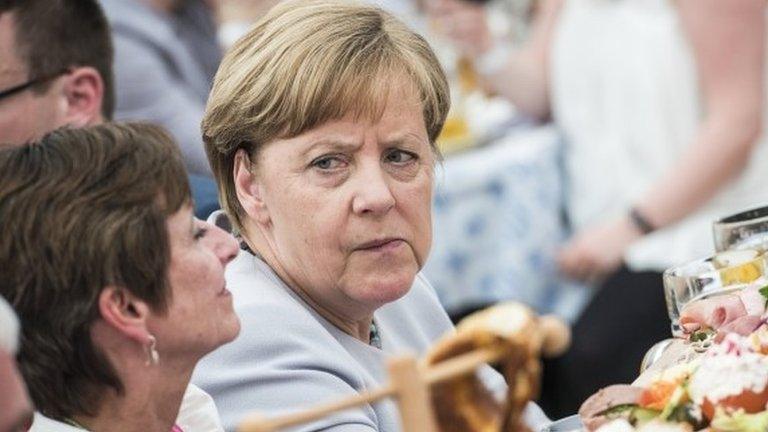
- Published3 June 2019
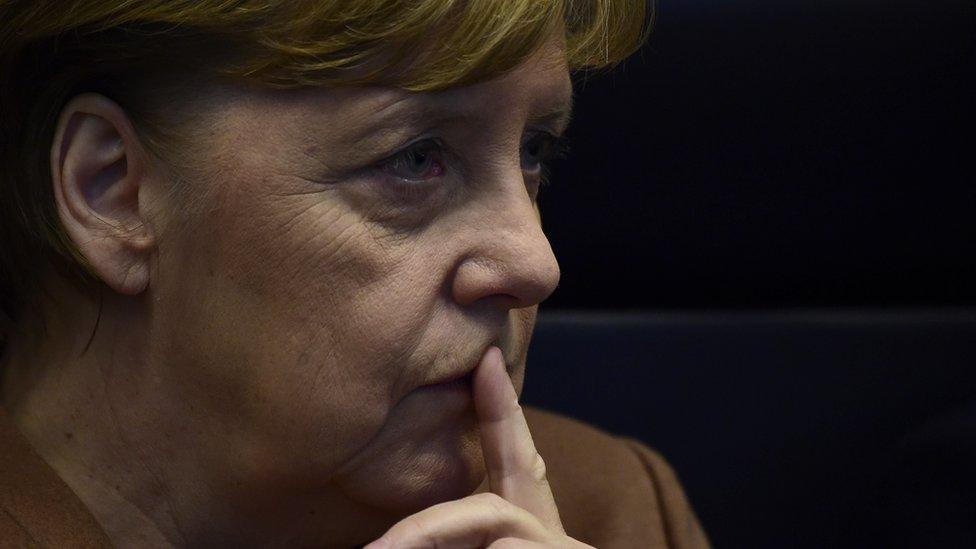
- Published25 May 2017
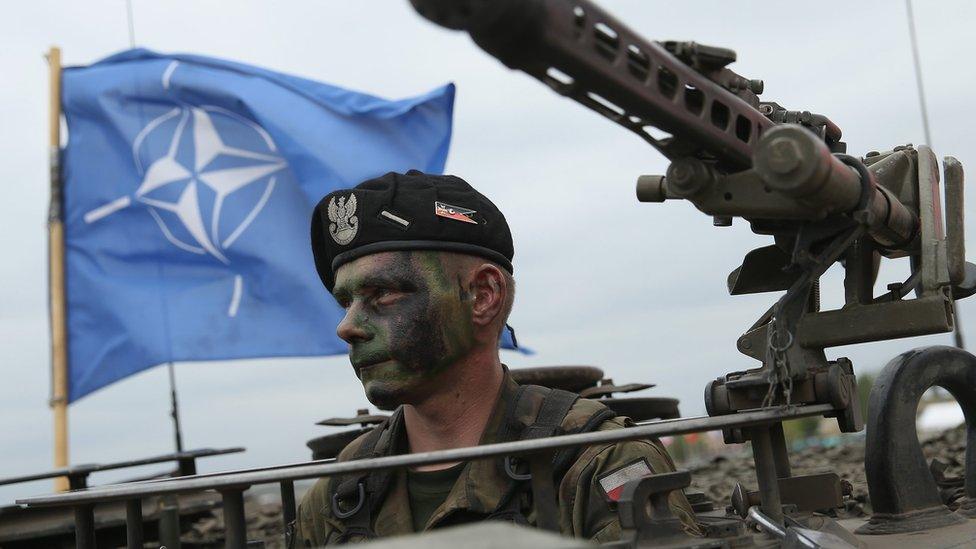
- Published25 May 2017
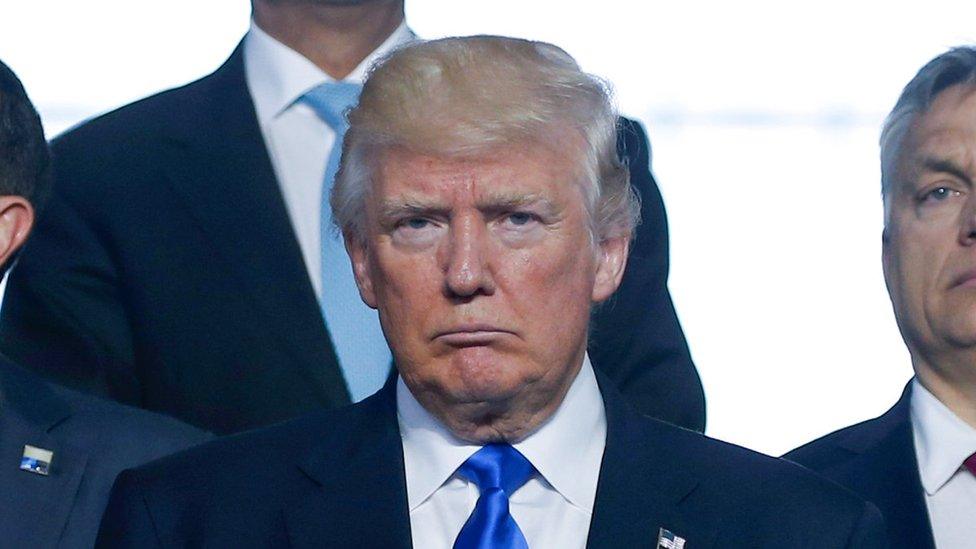
- Published24 May 2017
- Published23 May 2017
